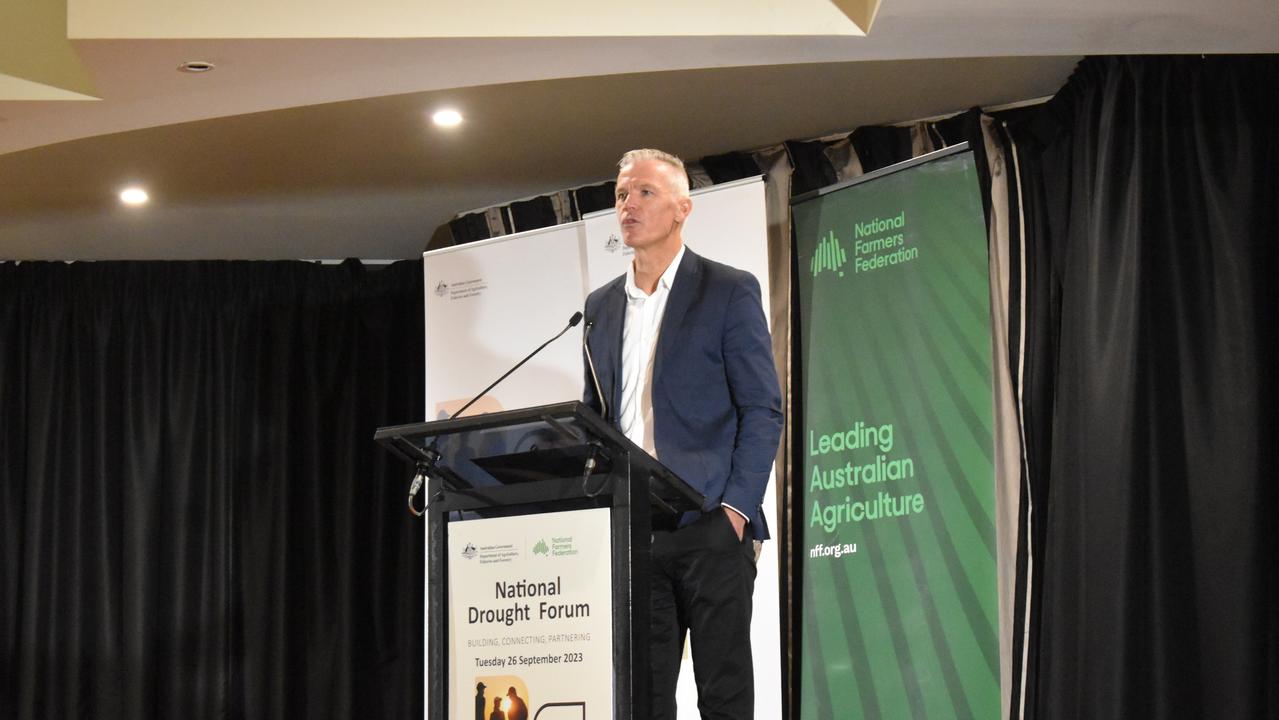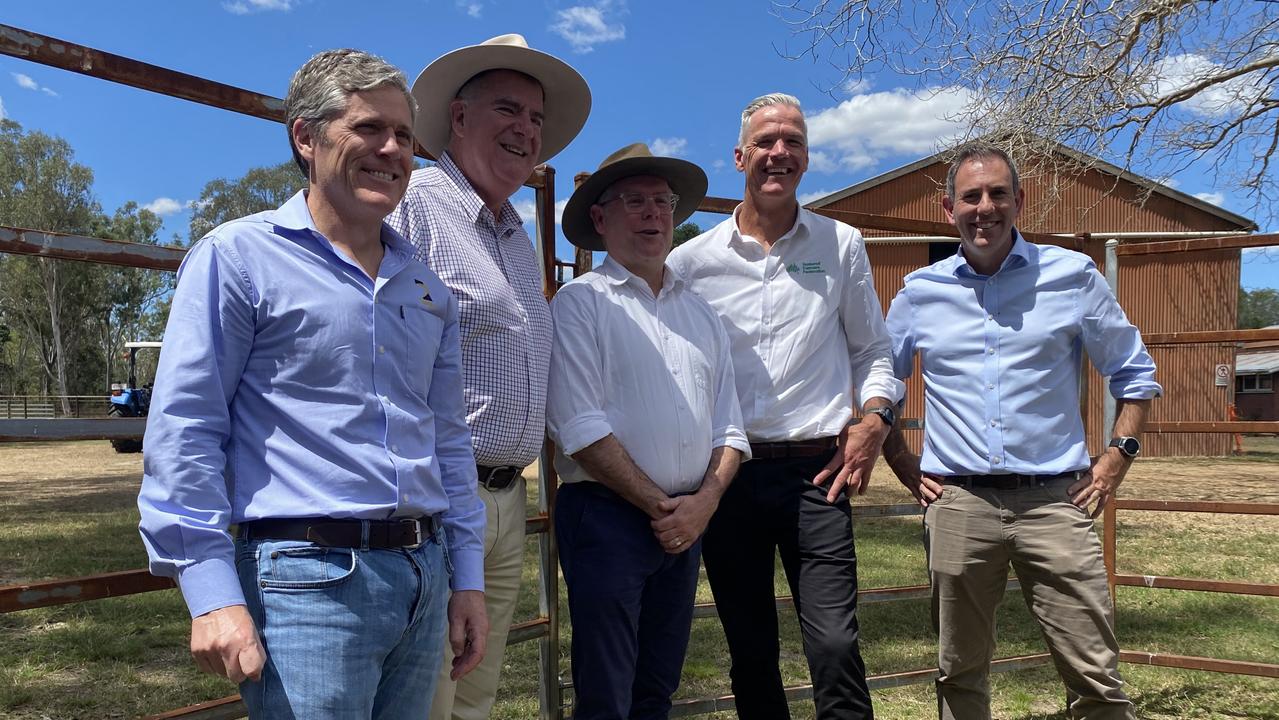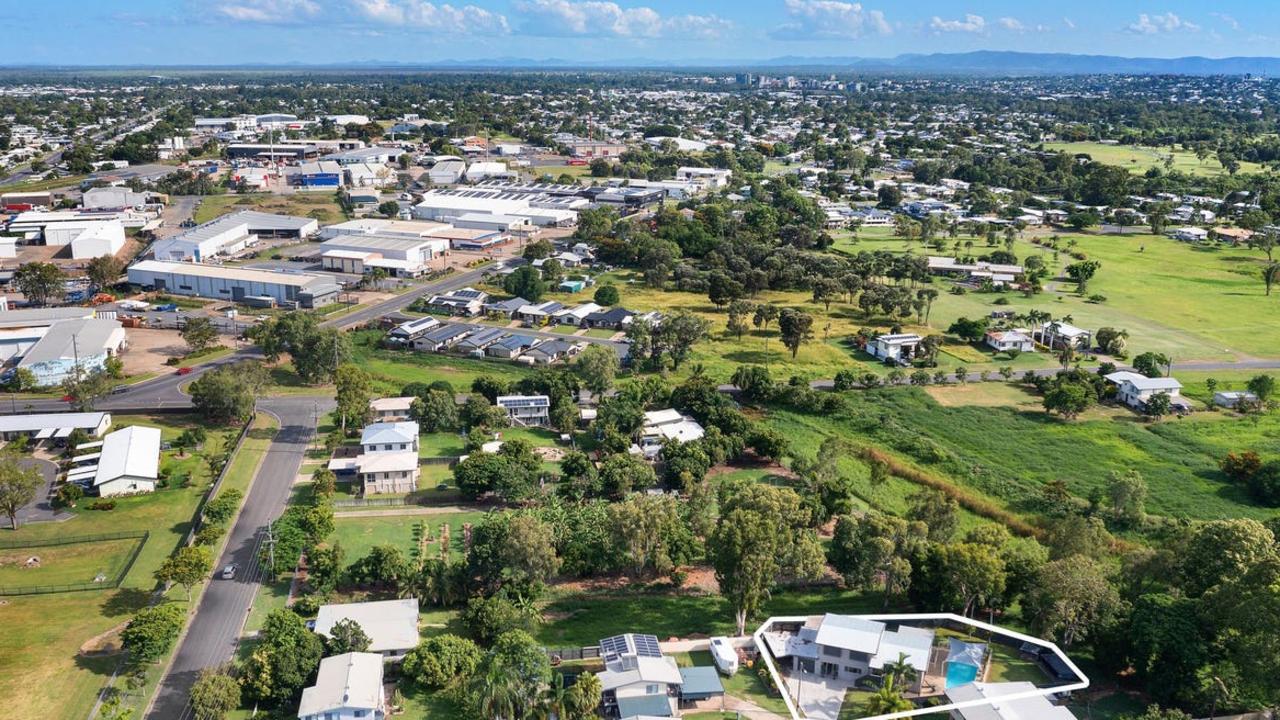Central Queensland grazier John Baker talks about farmers mental health
The various challenges driving about 30 percent of farmers to thoughts of suicide and self harm have been revealed at a drought forum in Central Queensland.

Rockhampton
Don't miss out on the headlines from Rockhampton. Followed categories will be added to My News.
About 30 per cent of farmers who responded to a recent National Farmers’ Federation (NFF) wellbeing survey attempted suicide or self harm, it was revealed at the National Drought Forum in Rockhampton on Tuesday.
NFF chief executive Tony Mahar told the ministers, agriculture industry stakeholders and government representatives that a further 45 per cent considered suicide or self harm.
About 1300 farmers aged 18 and over from across the country participated in the survey.
The survey results showed the top three mental health triggers for farmers were natural disasters, financial stress and inflation/cost pressures, Mr Mahar told the biannual National Drought Forum, held by the Federal Department of Agriculture, Fisheries and Forestry in partnership with the NFF.
Central Queensland grazier John Baker, from Booroondarra Station, said while there were tough times at present and in the months ahead with the El Nino weather event, it was important struggling farmers reached out for help.
“Whatever the issues are, the sooner you start talking to someone, the better it is so you’re not digging to keep battling through it, because you can dig into a big hole that’s harder to get out of,” he said.
“There are a whole lot of support mechanisms that are finding themselves in a difficult situation, people don’t like asking for help but I think it’s important they do ask for help.
“It’s not a sign of weakness to ask for help.”

AgForce CEO Michael Guerin said in the past few weeks there had been a noticeable change in tone in the conversations he had had with farms across the state.
However, Mr Guerin said while there were some difficult issues facing farmers in the short term, there was a lot of optimism for the agricultural sector as a whole.
“Despite the short term challenges there remains a tremendous optimism about this industry as whole, we a now seeing younger people coming back onto properties in bigger numbers than we’ve seen in a while and we’ve seen a reduction in the average age of the producer,” he said.
“If we can take an all of Australia approach to looking after each other, caring for each other, acknowledging the mental health challenges and bringing all that together to work through the cycles, we have a tremendous opportunity ahead of us.”
Farmer wellbeing, drought policy, market prices, preparedness and responses to the El Nino were hot topics at the event.

Mr Mahar said “diabolical” prices in the livestock market were having “devastating” impacts on graziers.
“I know sheep prices have dropped, and having conversations with some of those farmers this week, there are worrying conversations about euthanising sheep because they can’t put them into market to get any return,” he said.
“In fact they get billed because they put them on trucks to get them to market and processed and they’ll get a bill back rather than a cheque.”
Mr Baker said while the thoughts of dry conditions ahead were worrying for some, the low prices in the livestock market were one of the biggest things on the minds of producers at present.
“People are gearing themselves up for a dryer summer than normal, for me the thing that’s weighing more heavily on my mind than the dry weather... the low cattle prices,” he said.
“Depending on how long we have to wait for a break in the season and how long the prices stay where they are is where the pressure comes from.
“I think it’s (prices) around half of what it was this time last year, and that’s on the back of an increase of interest rates, price of fuel, electricity and everything that keeps going up, to have that sort of reduction in your income is definitely stressful.”
During the National Drought Forum Federal Agriculture Minister Murray Watt announced a drought resilience plan for the Fitzroy and Capricornia region, which will cover a range of areas including community wellbeing, resilient local businesses and economies, building skills and leadership, landscapes, and collaboration.
Drought Resilience Plans have also been finalised for the Darling Downs, Burdekin and Charters Towers, Torres Strait and Cape York and South West Queensland regions.
The plans were developed by councils, in partnership with regional communities, farmers and industry.
Each region will be supported with a grant of up to $300,000 to help kickstart implementation of priority actions identified in their plans.
Queensland regions will also be able to access up to $150,000 for an implementation officer to help put the plans into action.
More Coverage
Originally published as Central Queensland grazier John Baker talks about farmers mental health








